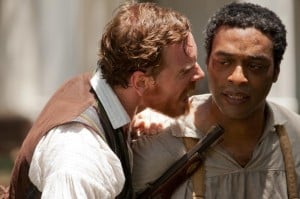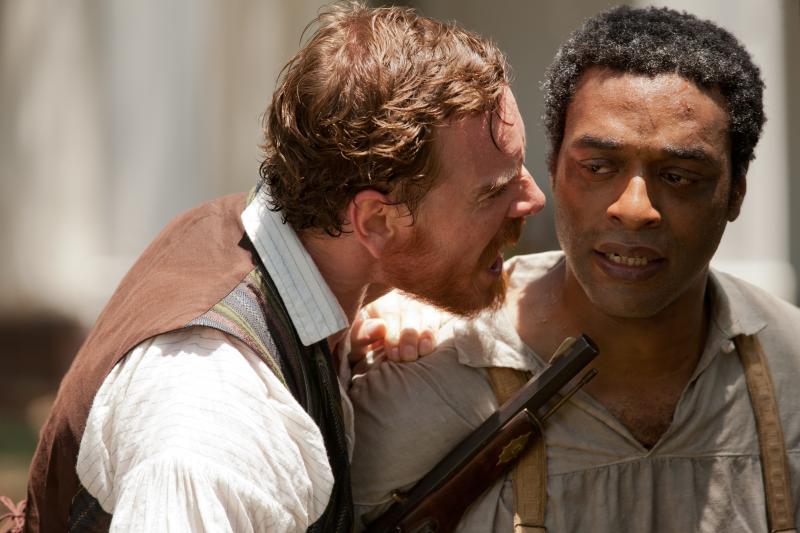Steve McQueen’s “12 Years A Slave” is different from his other movies, the magnificent “Hunger” and stunning “Shame.” It tells the true story of Solomon Northup, a New Yorker who in 1841 was deceived and sold into slavery. He spent a dozen years working for several masters in the South and was finally freed and reunited with his family in 1853. Although his story is told with immense dignity, its epic adaptation into film doesn’t quite capture what inner strength it took to endure the ordeal. The audience isn’t asked to comprehend Northup, but only to stand in awe of his survival.

This isn’t to say the film is completely lacking in depth: It is a harrowing portrayal of slavery and the often banal villainy through which it endured. Michael Fassbender gives the performance of a lifetime as Edwin Epps, the last of Northup’s (rechristened “Platt” when first sold) masters. His acting is fearless, transforming what could have been a two-dimensional antagonist into one of the most disturbing red-blooded bigots to grace the big screen. Playing his rancorous wife is Sarah Paulson, who, in one of the most startling scenes in the movie, abruptly throws a heavy glass decanter at Patsey, the master’s favorite, hitting her square across the face and knocking her out. Lupita Nyong’o, who plays Patsey with heartbreaking fragility, is perhaps the best acting discovery of the year. Her scenes with Fassbender are deeply unsettling, their chemistry one of the high points of the film.
Unfortunately, the same cannot be said of the dynamics of the whole cast. A chain of actors who can’t quite grasp the intonation and demeanor of the 19th century American English vernacular hampers the first half of the movie; they bog down the film with melodramatic deliveries that do little to move the story along. With the movie clocking in at 130 minutes, it’s hard not to reproach the director for lingering so long on struggling dramatizations and the writer (John Ridley) for such clichéd characterization.
Whatever its narrative shortcomings, the film is an undeniable visual triumph. Cinematographer Sean Bobbitt’s camera frames Northup’s life with dynamism and polish, pushing through sugar stalk and slipping through pigpens to witness Platt’s tale of abasement. In one particularly striking scene, Bobbit frames a full shot of Platt (almost) hanging from a tree after his lynching has been cut short. As he struggles on tiptoes in the muck, life on the plantation continues in the background: Slaves enter and exit the shot as they go about their work, and the mistress stares out languidly from the porch. Silently disquieting, it goes on for minutes, a literal dance for survival punctuated only by dry gagging.
The art direction is another of the film’s strengths, although some of the costumes, and particularly the urban scenes, lack the grit nowadays expected in a period film: “12 Years A Slave” is certainly no “Lincoln.” Its palette is much brighter, with most scenes taking place in the sun-soaked outdoors. The score is equally impressive: Master composer Hans Zimmer uses steel drums and other percussion to build unease, but at times the music does seems better suited for science fiction than a period piece.
However, “12 Years A Slave” is by no means a failure. It is a pleasing film, and reasonably uplifting. It will undoubtedly rake up the usual Academy Award nominations that grand epics periodically bag. But where there was opportunity to probe into how a man may lose his pride but retain his will to live, the filmmaker chose instead to focus on worldly afflictions. It’s odd, because even though I see Solomon naked, I see him beaten, I see him shamed, I see him whip a woman bloody and I see him embrace his grandson, I never understand precisely what it was that kept him going. Early on in the film he tells his fellow captives, “I don’t want to survive, I want to live.” How unfortunate that his survival, and not his life, was the tale Steve McQueen chose to tell.
